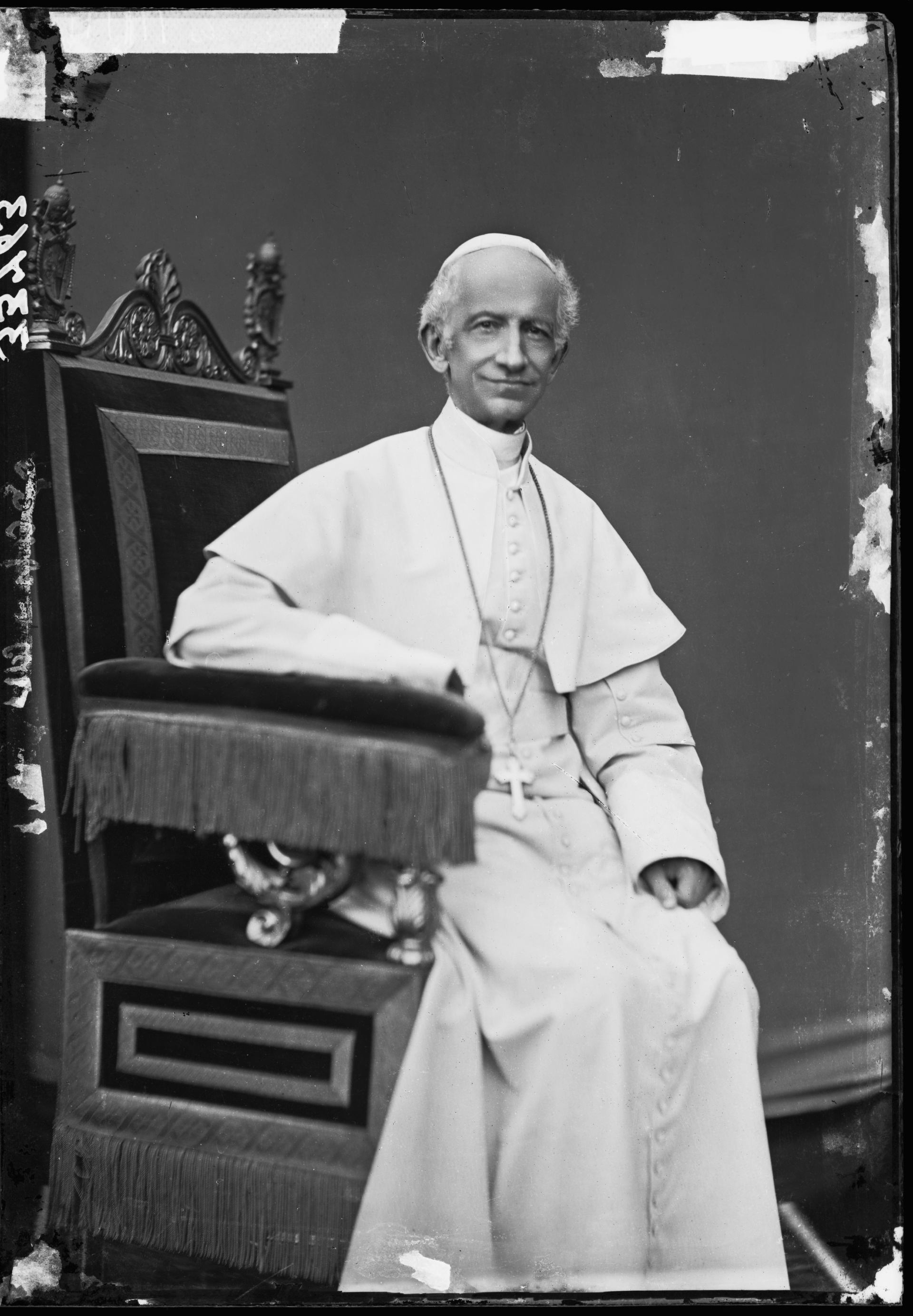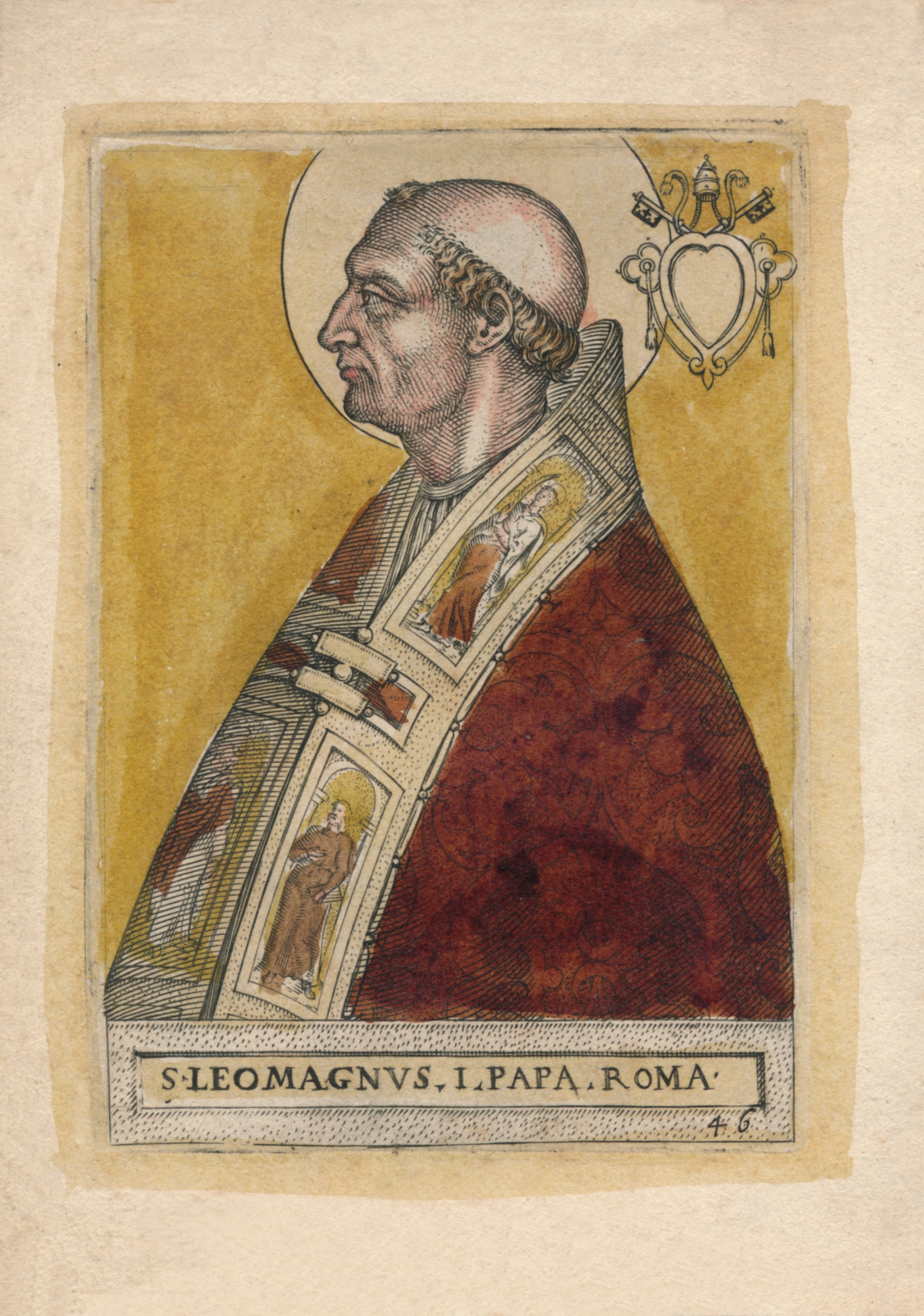Pinkerton: Leo XIV and the Search for a New Social Contract in the Age of AI
Some say the new pope, Leo XIV, is a liberal. Others say he’s a conservative. Yet Vice President JD Vance put it best: “It’s very hard to fit a 2,000-year-old institution into the politics of 2025 America.”
Yes, the Vicar of Christ transcends the red-blue partisan rumble. This is true even for the man who is the Church’s first American pope. Still, popes are often called upon to pass judgements on matters that spill into politics.
Such judgments start with the pontifical name the new Keeper of the Keys takes on; the name signals the papal predecessor he most wishes to emulate. In first address to the College of Cardinals, the man born as Robert Prevost explained: “I chose to take the name Leo XIV . . . mainly because Pope Leo XIII in his historic Encyclical Rerum Novarum addressed the social question in the context of the first great industrial revolution.”
That 14,000-word encyclical Rerum Novarum—the title is Latin for “Of New Things”—was published almost exactly 134 years ago, on May 15, 1891, when the earlier Leo could see that industrializing societies risked cracking up amidst the collisions of labor vs. capital. Fear of worker immiseration on the one hand and fear of worker revolution on the other loomed large.
In fact, even before his ascension to the Throne of St. Peter, Leo XIII had been applying his churchly powers to the cause of social harmony when he was the Bishop of Perugia. In the words of one biographer:
When Bishop of Perugia [from 1846 to 1877,] he advocated the establishment in his diocese of societies which tended to elevate and benefit the material condition of artisans and laborers. He urged the banding together in organizations of both employers and employees for the purpose of arranging satisfactorily conditions beneficial to both, and the enactment of laws conducive to their mental, moral and physical development.
Such efforts—a part of what’s known as Catholic Social Teaching— sought a middle ground on economic matters that firmly rejected socialism and communism but also opposed laissez-faire libertarianism. As this author has recalled for Breitbart News, Leo XIII wanted both business and labor to have rights and to be treated justly.
Inspired by Leo XIII’s encyclical, lay Catholics formed political parties around the world, often styled as Christian Democrats, seeking to harmonize divergent and conflicting forces into a centrist program.
James Gibbons (1834-1921), Archbishop of Baltimore and the senior prelate in America, proved to be an effective champion of this integrative vision; he staunchly defended the Knights of Labor, an early union.
In the 20th century, “worker priests” often stood with union organizers and other activists. The result was the emergence of an urban Democratic Party, heavily Catholic, focused on the blue-collar concerns of wages, hours, and job-safety.
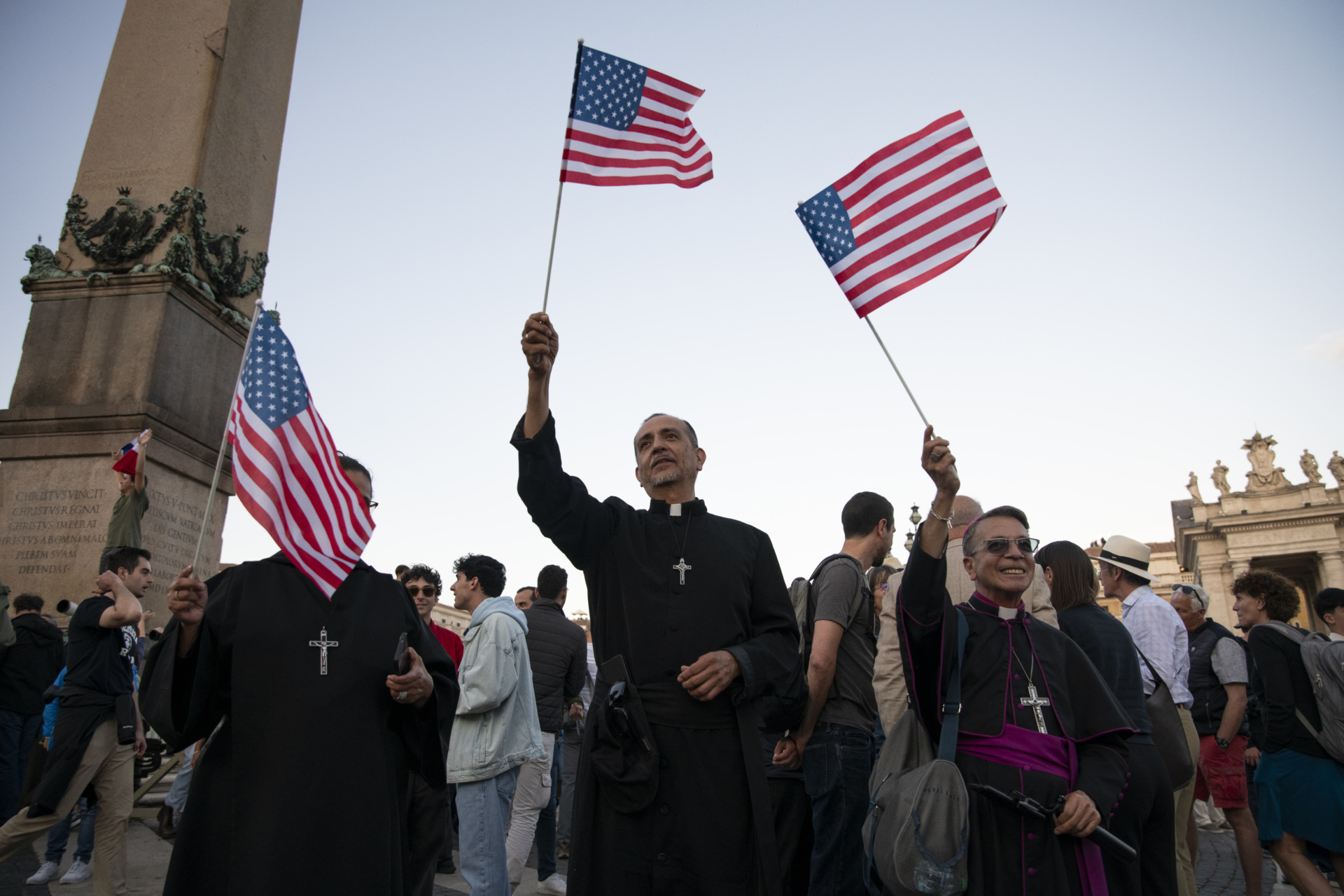
American priests wave the American flag as the newly elected Pope Leo XIV, Robert Francis Prevost, after arrives for the first time on loggia of St. Peter’s Basilica, on May 8, 2025. (Andrea Mancini/NurPhoto via Getty Images)
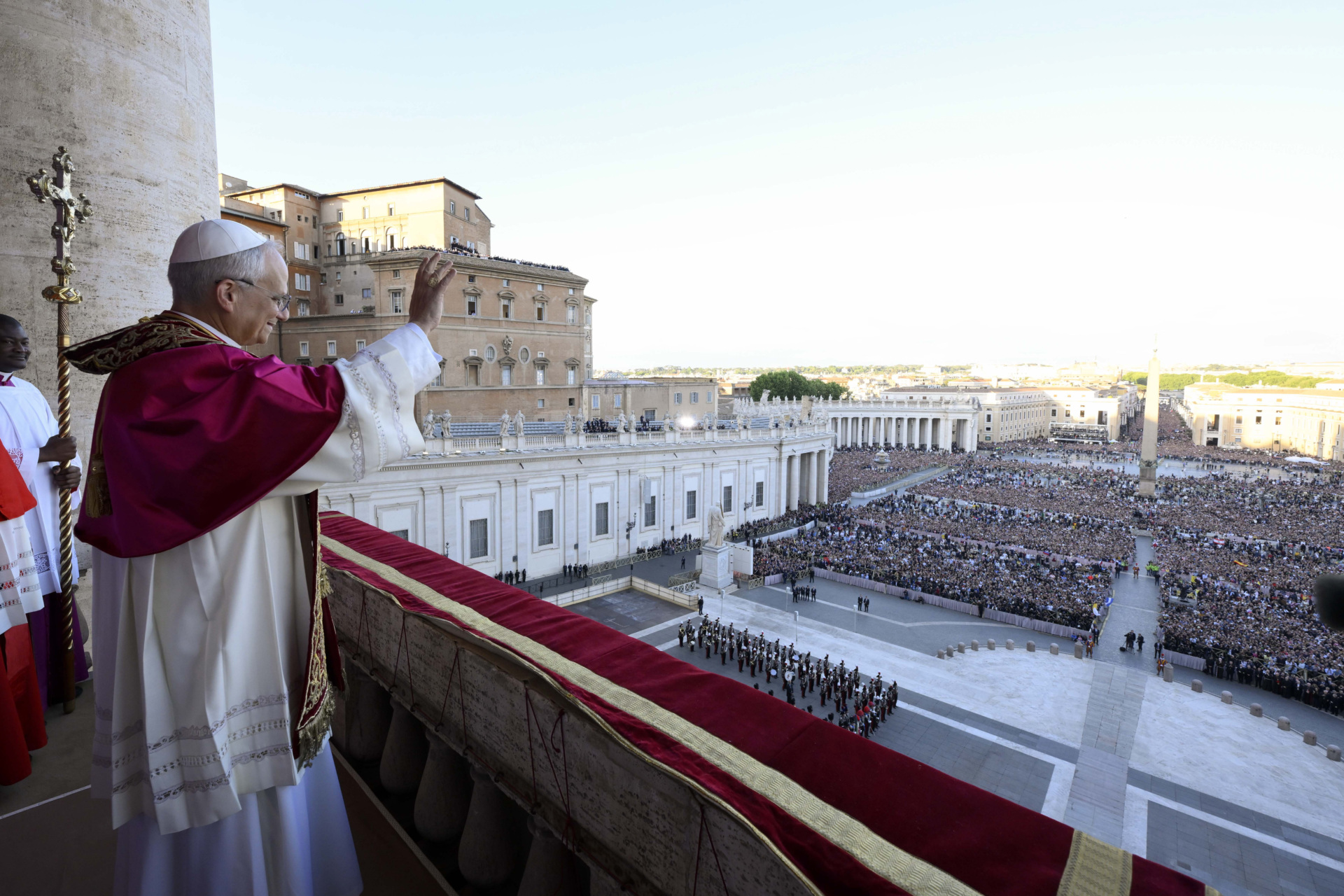
Newly elected Pope Leo XIV addresses the crowd on the central loggia overlooking St. Peter’s Square on May 8, 2025, in Vatican City. (Francesco Sforza – Vatican Media/Getty Images)
Notable Democratic leaders in those days included Al Smith, the governor of New York and, who, in 1928, was the first Catholic to receive a major-party nomination for president. Another was Sen. Robert Wagner, also of New York; he was the principal author of the National Labor Relations Act of 1935, the so-called “Magna Carta of Labor.” And, of course, John F. Kennedy of Massachusetts, elected in 1960 as the first Catholic president.
In general, these figures were economic liberals but social conservatives. Most obviously, they never questioned the Catholic Church’s teaching on the sin of abortion. And as for anything to do with transgenderism, fuhgeddaboutit. (Back in those meat-and-potatoes days, no Democratic official dreamed that transgenderism would be anything other than a possible excuse to evade military service, a la Corporal Klinger in the TV show “M*A*S*H.”)
Moreover, the old Catholic Democrats, such as Sen. Pat McCarran of Nevada, were strongly anti-communist. They had seen what had happened to their fellow believers behind Stalin’s Iron Curtain; the fate of Cardinal József Mindszenty of Hungary was closely watched. Here at home, McCarran and others worked to make sure that communist immigrants would never be allowed into the United States.
Yet by the 1970s, this patriotic, solidaristic Catholicism was coming under fierce attack from the New Left. The hinge came in 1972, when George McGovern (a Protestant) ran for president on a platform focused on social issues, summed up as “acid, abortion, and amnesty.” McGovern lost the general election in a landslide, and yet the McGovernites took over the Democratic Party, marching toward its current stances on abortion, immigration, and, of course, transgenderism.
In response, Catholics became more Republican. In 2024, a majority of them voted for Donald Trump, and if we examine the votes of those who attend mass frequently, the Trump percentage goes even higher.
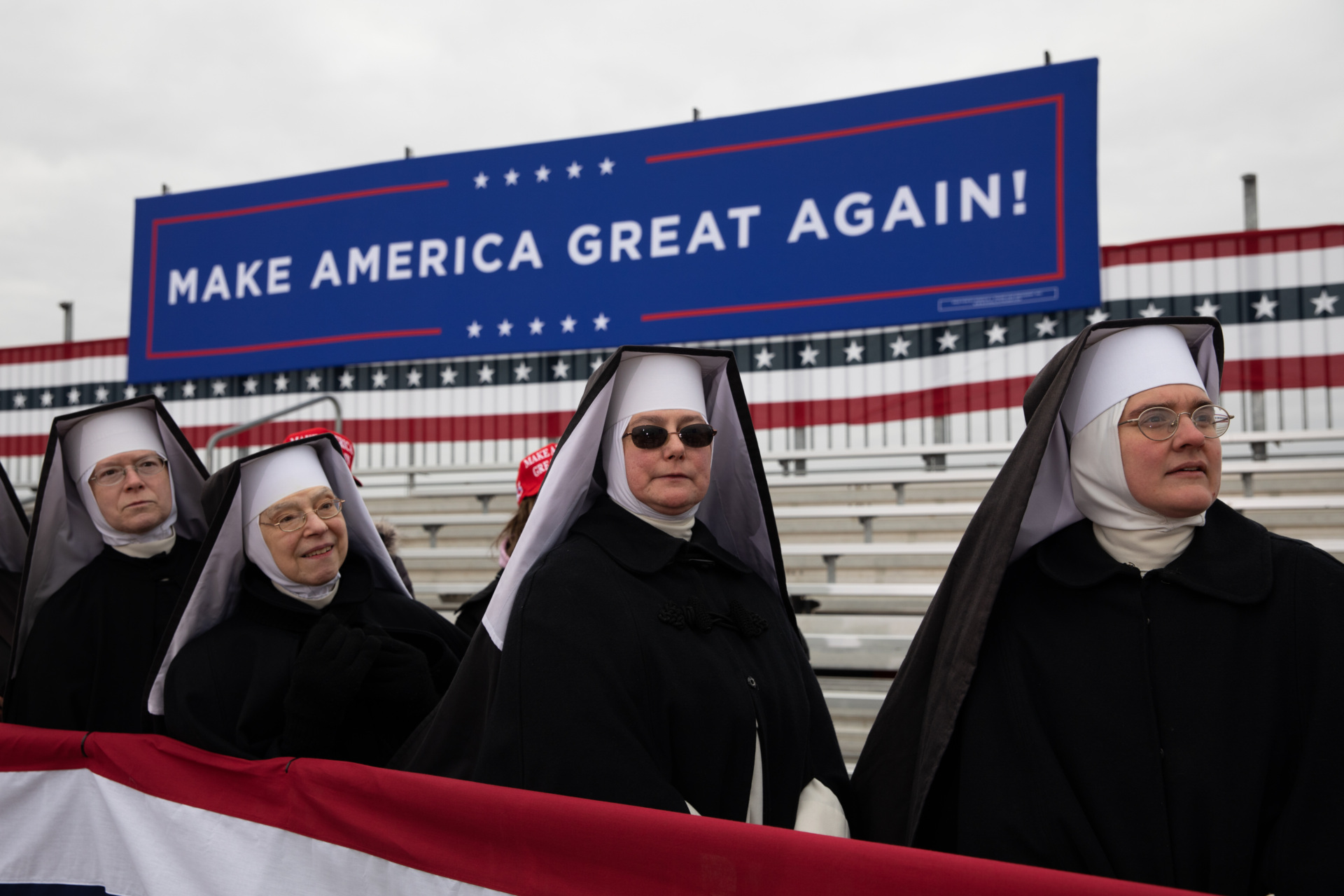
Catholic nuns stand in front of a “Make America Great Again” sign while waiting for the arrival of President Donald Trump during a rally in Waterford, Michigan, on Oct. 30, 2020. (Emily Elconin/Bloomberg via Getty Images)
Yet in whatever party they’re in, Catholics insist on protections for workers and their families. Happily, that’s a message most Republican are embracing. Sen. Jim Banks of Indiana recently outlined his vision of the GOP coalition: “It’s a multiracial, union, across-the-board working class…You win on that agenda.” [emphasis added]
So, now Pope Leo XIV. In that same May 10 speech, he said the time has come for the Roman Catholic Church to think about “another industrial revolution,” specifically, “developments in the field of artificial intelligence that pose new challenges for the defense of human dignity, justice and labor.”
We simply don’t know what will come of all these tech changes—to the workplace, to politics, to social relations, to life itself. Yet Leo is ready to prayerfully search for positive answers; as he said, “The Church offers to everyone the treasury of her social teaching.” It’s likely we’ll see a new encyclical, a Rerum Novarum for the 21st century, focused once again on defending human dignity in the face of new things.
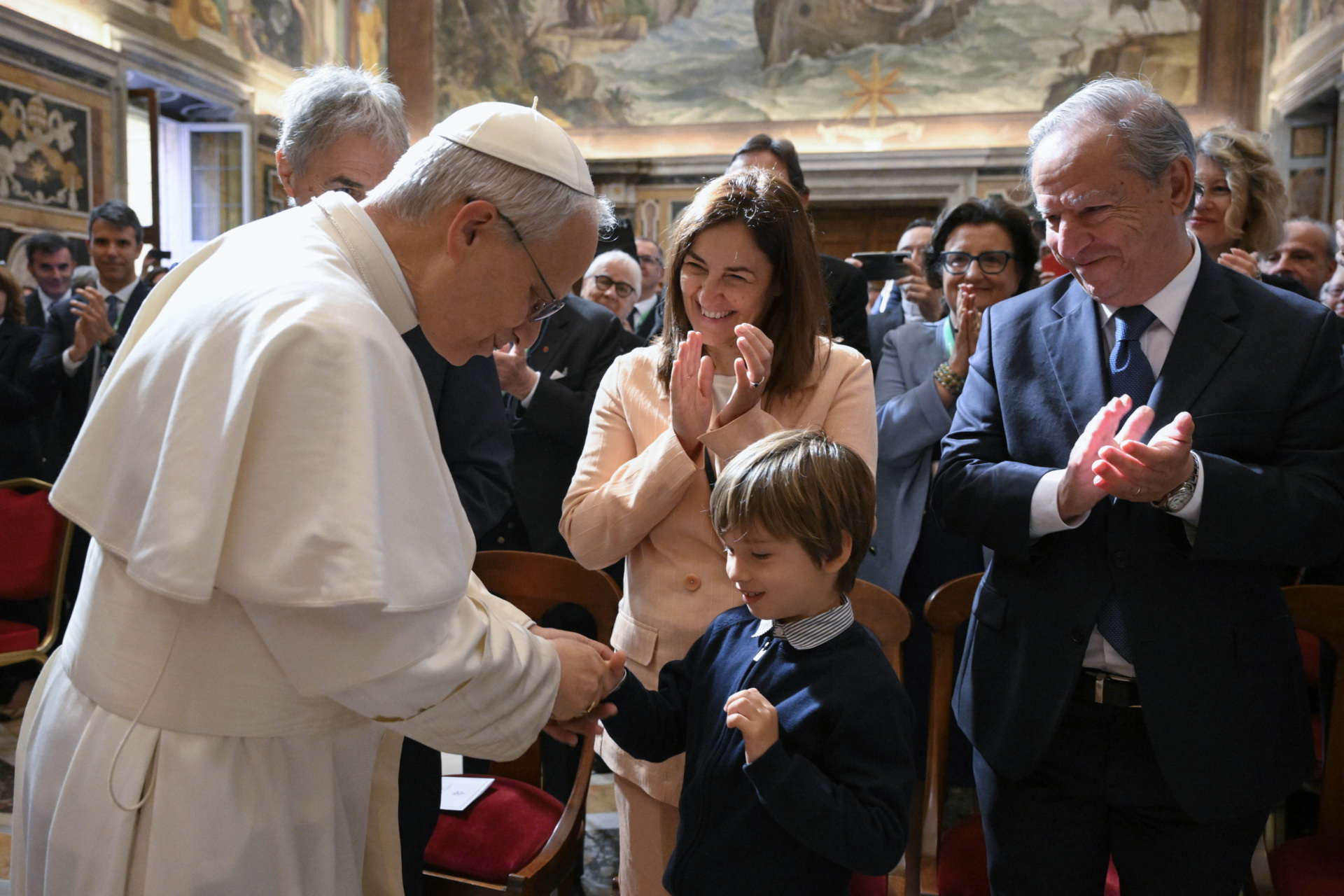
Pope Leo XIV attends an audience with members of the Centesimus Annus Pro Pontifice Foundation on May 17, 2025, in Vatican City, Vatican. (Vatican Media via Vatican Pool/Getty Images)
We may have gotten a glimpse of that future encyclical in Leo XIV’s address on Friday to the Vatican’s Diplomatic Corps. “It is the responsibility of government leaders to work to build harmonious and peaceful civil societies. This can be achieved above all by investing in the family, founded upon the stable union between a man and a woman, ‘a small but genuine society, and prior to all civil society’,” he declared, quoting directly from his predecessor’s Rerum Novarum.
Interestingly, another Pope Leo—Leo the I, known as Leo the Great, who led the Church from 440 to 461 AD—also defended human dignity. Back then, a pressing question was the inherent equality of faith; as Leo the Great preached:
No one is shut out from this joy; all share the same reason for rejoicing. Our Lord, victor over sin and death, finding no man free from sin, came to free us all. Let the saint rejoice as he sees the palm of victory at hand. Let the sinner be glad as he receives the offer of forgiveness. Let the pagan take courage as he is summoned to life. In the fullness of time, chosen in the unfathomable depths of God’s wisdom, the Son of God took for himself our common humanity in order to reconcile it with its creator.
At a time when slavery was common, this was a bold, even radical, claim—that all Christians, of any station, could find an honored place in God’s kingdom. (And just on May 16, the new pope affirmed traditional church teachings on human dignity: against the “throwaway culture” of abortion and euthanasia, in favor of marriage between one man and one woman.)
Sixteen-hundred years after the first Leo, Artificial Intelligence could enrich and enslave us—perhaps one or the other, perhaps both at the same time. So, even non-Catholics should appreciate that Leo XIV is summoning his Church to build a fortress for the free will of faith—the right of each soul to find a path to salvation.
Will Leo XIV be as effective in advancing this humane social vision in the public square as was Leo XIII?
We should hope. And, if we’re of a mind to, we should pray.
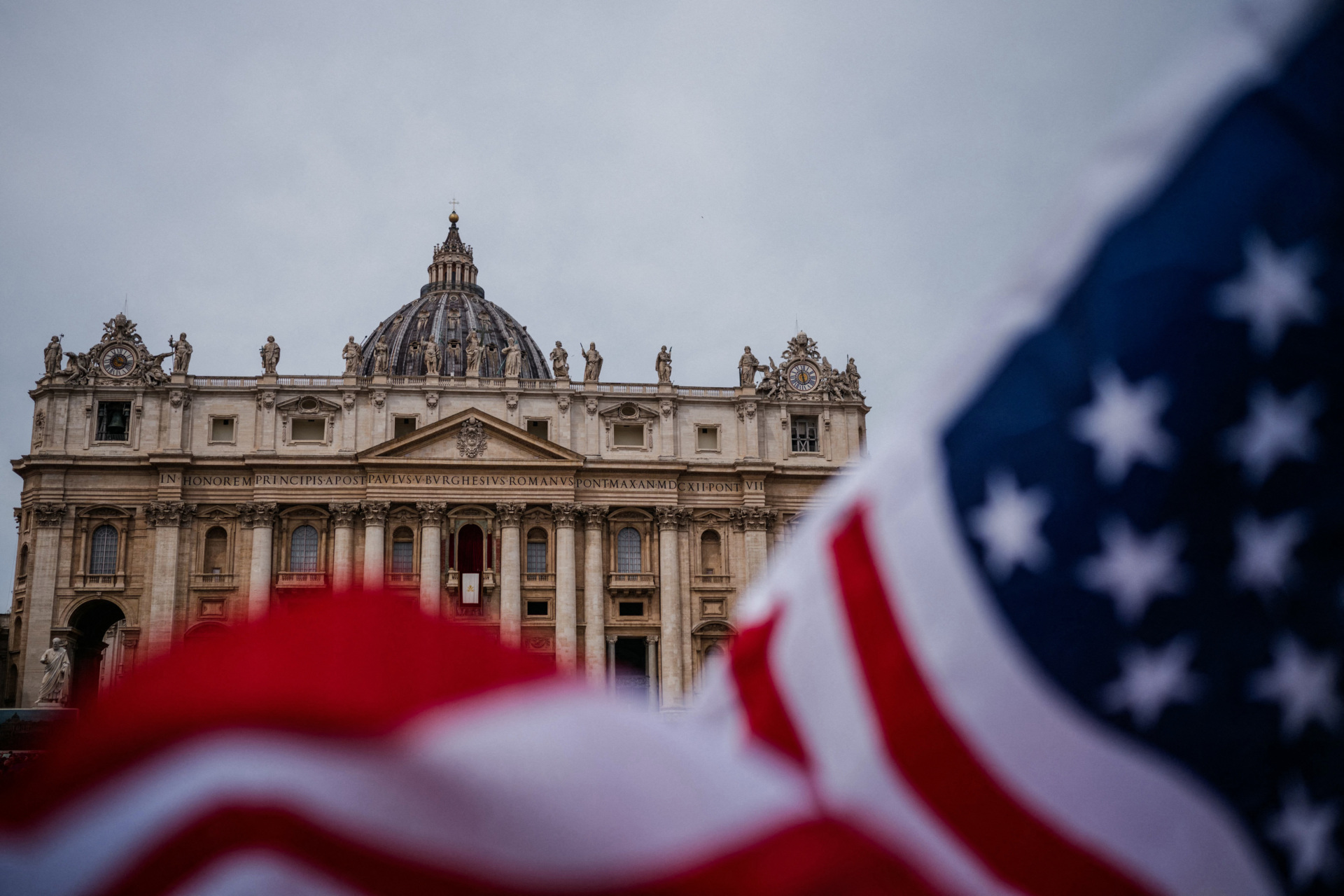
An American flag is waved in front of St. Peter’s Basilica ahead of Pope Leo XIV leading his first Regina Caeli prayer on May 11, 2025. (DIMITAR DILKOFF/AFP via Getty Images)



